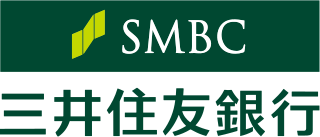Related Research Articles

Mergers and acquisitions (M&A) are business transactions in which the ownership of companies, business organizations, or their operating units are transferred to or consolidated with another company or business organization. As an aspect of strategic management, M&A can allow enterprises to grow or downsize, and change the nature of their business or competitive position.

Investment banking pertains to certain activities of a financial services company or a corporate division that consist in advisory-based financial transactions on behalf of individuals, corporations, and governments. Traditionally associated with corporate finance, such a bank might assist in raising financial capital by underwriting or acting as the client's agent in the issuance of debt or equity securities. An investment bank may also assist companies involved in mergers and acquisitions (M&A) and provide ancillary services such as market making, trading of derivatives and equity securities, FICC services or research. Most investment banks maintain prime brokerage and asset management departments in conjunction with their investment research businesses. As an industry, it is broken up into the Bulge Bracket, Middle Market, and boutique market.
Chemical Bank was a bank with headquarters in New York City from 1824 until 1996. At the end of 1995, Chemical was the third-largest bank in the U.S., with about $182.9 billion in assets and more than 39,000 employees around the world.
Tyco International plc was a security systems company incorporated in the Republic of Ireland, with operational headquarters in Princeton, New Jersey, United States. Tyco International was composed of two major business segments: security solutions and fire protection.

BankBoston was a bank based in Boston, Massachusetts, which was created by the 1996 merger of Bank of Boston and BayBank. One of its predecessor banks started in 1784, but the merged BankBoston was short-lived, being acquired by FleetBoston Financial in 1999. In 2005, FleetBoston was purchased by, and merged into, Bank of America of Charlotte, North Carolina.

Sumitomo Mitsui Banking Corporation is a Japanese multinational banking financial services institution owned by Sumitomo Mitsui Financial Group, Inc. It is headquartered in Yurakucho, Chiyoda, Tokyo, Japan. The group operates in retail, corporate, and investment banking segment worldwide. It provides financial products and services to a wide range of clients, including individuals, small and medium-sized enterprises, large corporations, financial institutions and public sector entities. Since 2011, it has been included into the Financial Stability Board's list of global systemically important banks.

Bulge bracket banks are the world's largest multi-national investment banks, serving mostly large corporations, institutional investors and governments. The term "Bulge Bracket" comes from the way investment banks are listed on the "tombstone", or public notification of a financial transaction;, where the largest advisors on investment banking operations are listed first. The term is primarily related to the financial advisory side of the business, as opposed to sales and trading.
Dean Witter Reynolds was an American stock brokerage and securities firm catering to a variety of clients. Prior to the company's acquisition, it was among the largest firms in the securities industry with over 9,000 account executives and was among the largest members of the New York Stock Exchange. The company served over 3.2 million clients primarily in the U.S. Dean Witter provided debt and equity underwriting and brokerage as mutual funds and other saving and investment products for individual investors. The company's asset management arm, Dean Witter InterCapital, with total assets of $90.0 billion prior to the acquisition, was one of the largest asset management operations in the U.S.

Bryan Cave Leighton Paisner LLP is an international law firm with 31 offices worldwide. Bryan Cave was headquartered in St Louis, Missouri. Berwin Leighton Paisner was headquartered in London.

Borden Ladner Gervais LLP is a leading, full-service law firm in Canada. With two hundred years of history going back to the 1823 founding of McMaster Gervais, it now has offices in Toronto, Montréal, Vancouver, Ottawa, and Calgary. With almost 900 lawyers, intellectual property agents and other professionals are associated with the firm. BLG is governed by a national council composed of partners from across Canada. Sean Weir served as the firm's first National Managing Partner until 2018, and was succeeded in the position by John Murphy of the Montreal office.

Leaf International BV was a confectionery company founded in the 1940s. Leaf had sales of approximately €527m (2010) and 2,400 employees. It had 11 factories in seven countries. Leaf was owned by CVC Capital Partners, Nordic Capital, and management. Bengt Baron was the CEO of Leaf.
A special purpose acquisition company, also known as a "blank check company", is a shell corporation listed on a stock exchange with the purpose of acquiring a private company, thus making the private company public without going through the initial public offering process, which often carries significant procedural and regulatory burdens. According to the U.S. Securities and Exchange Commission (SEC), SPACs are created specifically to pool funds to finance a future merger or acquisition opportunity within a set timeframe; these opportunities usually have yet to be identified while raising funds.
Drew & Napier LLC is one of Singapore’s leading law firms. Founded in 1889, the firm has more than 500 employees. It is regarded as one of the “Big Four” law firms in Singapore.
Corporate synergy refers to a financial benefit that a corporation expects to realize when it merges with or acquires another corporation. Corporate synergy occurs when corporations interact congruently with one another, creating additional value.
Alsys, SA. was a software development company created to support initial work on the Ada programming language. In July 1995, Alsys merged to become Thomson Software Products (TSP), which merged into Aonix in 1996.

A tax inversion or corporate tax inversion is a form of tax avoidance where a corporation restructures so that the current parent is replaced by a foreign parent, and the original parent company becomes a subsidiary of the foreign parent, thus moving its tax residence to the foreign country. Executives and operational headquarters can stay in the original country. The US definition requires that the original shareholders remain a majority control of the post-inverted company. In US federal legislation a company which has been restructured in this manner is referred to as an "inverted domestic corporation", and the term "corporate expatriate" is also used.
King & Wood Mallesons (KWM) is the largest global law firm in Asia. It has thirty offices and more than 3,500 legal professionals in Europe, North America, Asia and the Middle East.
The Glass–Steagall legislation was enacted by the United States Congress in 1933 as part of the 1933 Banking Act, amended as part of the 1935 Banking Act, and most of it was repealed in 1999 by the Gramm–Leach–Bliley Act (GLBA). Its protections and restrictions had also been chipped away during most of its existence by lenient regulatory interpretations and use of loopholes. After Glass–Steagall's 1999 repeal, there was a great deal of discussion in the banking and securities industries, and among policymakers and economists, about the practical positive and negative changes to the business and consumer environment. Later, as financial crises and other issues played out in the United States and even worldwide, arguments have broken out about whether Glass–Steagall, as originally intended, would have prevented these issues.
Allen & Gledhill LLP is a Singapore law firm with a regional network of associate firms and offices. It is the largest law firm in Singapore, and is a regional market leader in many practices, particularly banking, finance, capital markets, corporate law, M&A law, and other transactional and advisory matters. The firm provides legal services to local companies and MNCs, financial institutions, and individual clients.

Shardul Amarchand Mangaldas & Company is a full-service Indian law firm. The Firm came into existence on May 11, 2015, from its predecessor Amarchand & Mangaldas & Suresh A Shroff.
References
- "The IFLR guide to Mergers and Acquisitions 2004", International Financial Law Review, 2004, webpage: IFLR-M&A-71.